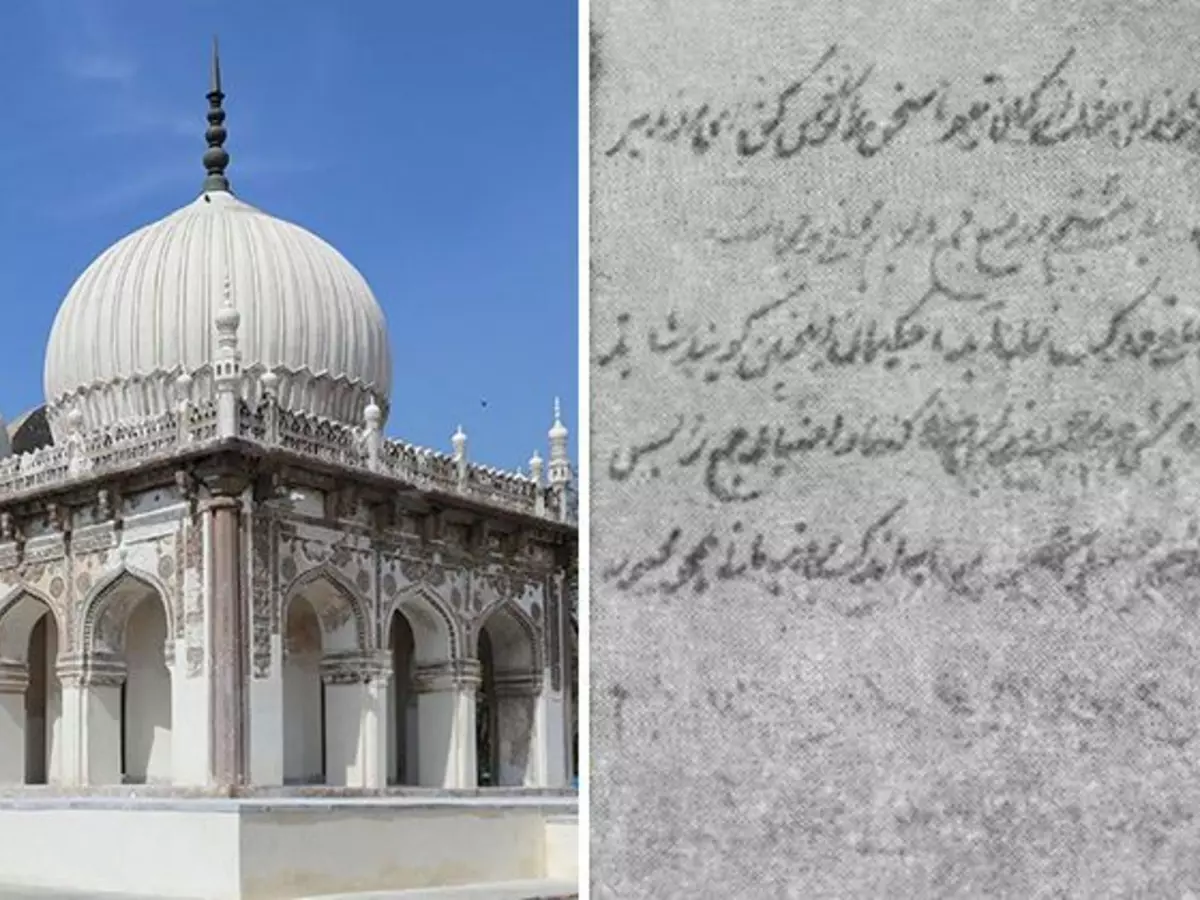Hyderabad¡¯s Own Kamasutra 'Lazzat-Un-Nisa' Found As Restoration Of Golconda Fort Continues
The grand restoration of Hakims¡¯ tombs at Golconda necropolis has brought to focus the long forgotten Hyderabad¡¯s own Kamasutra. A magnum opus on sexual health was prepared during the Qutub Shahi period under the supervision of the royal Hakims

The grand restoration of Hakims¡¯ tombs at Golconda necropolis has brought to focus the long forgotten Hyderabad¡¯s own Kamasutra.
A magnum opus on sexual health was prepared during the Qutub Shahi period under the supervision of the royal Hakims, whose mausoleums were restored, thanks to Aga Khan Foundation.
The medical treatise called Lazzat-un-Nisa (Flavours of woman) is often described as the Kamasutra of Hyderabad. It was published during the reign of Sultan Abdullah Qutub Shah.

bccl
A page from Lazzat-un-Nisa, the Kamasutra of Hyderabad, written about 400 years ago.
Hakim Nizamuddin Ahmad and Hakim Abdul Jabbar Gilani, who are laid to rest in the necropolis, were the royal physicians when the treatise was published.
Lazzat-un-Nisa was a translation of Koka Shastra, a manual of love and health based on the famous Sanskrit work, Kamasutra. It was translated into Persian by Mohammed Shah Jami, supervised by Hakim Nizamuddin.
A copy of the original manuscript was last seen in the state museum in Public Gardens in Hyderabad.

toi
Dr SA Hussain, who served in the National Institute of Indian Medical Heritage (NIIMH), Hyderabad, told TOI that Lazzat-un-Nisa dealt extensively with sexology. In fact, it was a manual on sexual health and family life.
Though penned about four centuries ago, its teachings still stand good. ¡°An interesting thing about this magnum opus is that the translator had not named the work. Others began calling it Lazzat-un-Nisa, and the treatise got the poetic nomenclature,¡± he said, adding that it has several medical advices in the form of couplets.
According to Dr Momin Ali, a researcher from NIIMH, which was formerly known as Indian Institute of History of Medicine, said the city¡¯s Kamasutra was divided into 26 folios. The manuscript was completed in 1646 CE, a year after Hakim Nizamuddin was appointed royal physician.

toi
Unlike the original Sanskrit work, Hyderabad¡¯s Kamasutra ga- a poetic touch to sexology with sher and shayiri. Hussain and Momin Ali describe the translator of Koka Shastra as a ¡°poet-cumtranslator¡±. The book, which is divided into 10 chapters, precedes with a long poetry.
The book has couplets on the nature of men and the qualities of men and women. It has as many as 30 couplets describing Padmini, the woman with the most excellent qualities among the four types of women described in Kamasutra.
It has chapters on other three women types mentioned in Kamasutra ¡ª Chetani, Sankhini and Hastini. Then there are separate couplets on different methods one should adopt with each of the four women types. It also deals with the nerves that have sexual stimulation, besides precautions to be observed during pregnancy.
